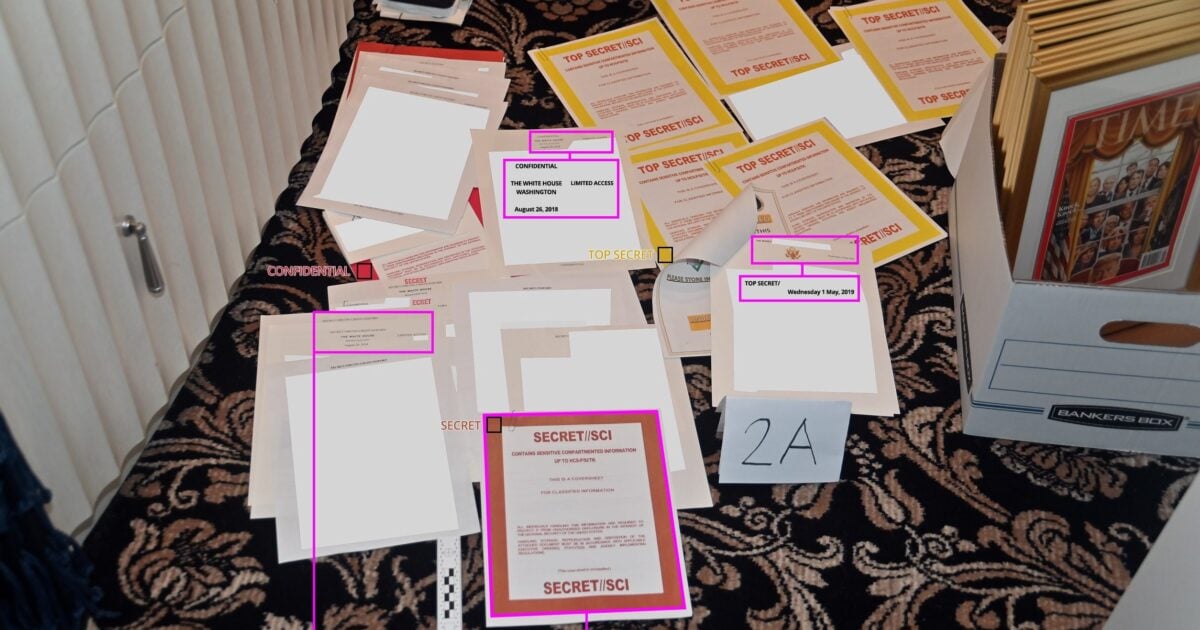
President Trump’s 14th Amendment rights are being trampled on. No, we’re not talking about the “insurrection” clause that the highly-partisan “Jan 6 Committee” of Pelosi’s 116th Congress likes to tout as an inhibition against President Trump being able to seek re-election, even though no Jan 6 defendant has been as much as charged, none the less convicted, with 18 USC 2383.
This is, instead, a reference to Section 1 of the 14th Amendment, which states “…nor deny any person within its jurisdiction the equal protection of the laws.”
According to Cornell Law School:
Equal Protection refers to the idea that a governmental body may not deny people equal protection of its governing laws. The governing body state must treat an individual in the same manner as others in similar conditions and circumstances.
…
U.S. Constitution
The Fifth Amendment’s Due Process Clause requires the United States government to practice equal protection. The Fourteenth Amendment’s Equal Protection Clause requires states to practice equal protection.
Equal protection forces a state to govern impartially—not draw distinctions between individuals solely on differences that are irrelevant to a legitimate governmental objective. Thus, the equal protection clause is crucial to the protection of civil rights.
For your own analysis as to whether or not President Trump’s 14th Amendment rights are being violated, here is a side-by-side comparison of the Trump indictment and the Comey report on Hillary Clinton’s private email servers. Remember: Hillary’s aides took a hammer to their cellular devices and “bleached” their emails, deleting 33,000 public records, after the documents were subpoenaed.
Thread
Here’s a comparison of two classified document situations.
Trump versus Clinton.
I won’t debate over whether Trump was justified (he was), but I’m going to show the hypocrisy in bringing charges against Trump.
This is the two-tier system of justice.
— Jon Herold (@patel_patriot) June 13, 2023
Yesterday, in another seeming acknowledgment that this is a weaponized DOJ prosecuting a political rival, Michael Besheka wrote a damning opinion in the Wall Street Journal. Why is Michael Besheka’s opinion on this so relevant to President Trump’s indictment? Well, he was the attorney who litigated and lost the “Socks Case” involving Bill Clinton keeping tapes in his sock drawer after leaving the White House.
Besheka writes:
Although the indictment against Donald Trump doesn’t cite the Presidential Records Act, the charges are predicated on the law. The indictment came about only because the government thought Mr. Trump took records that didn’t belong to him, and the government raided his house to find any such records.
This should never have happened. The Presidential Records Act allows the president to decide what records to return and what records to keep at the end of his presidency. And the National Archives and Records Administration can’t do anything about it. I know because I’m the lawyer who lost the “Clinton sock drawer” case.
The case Bekesha unsuccessfully litigated on behalf of Judicial Watch in 2012 involved eight years’ worth of conversations recorded by then-President Bill Clinton, in conjunction with the White House, from 1993 to 2001. According to the book “The Clinton Tapes: Wrestling History With the President” by historian Taylor Branch, “the audiotapes preserved not only Mr. Clinton’s thoughts on issues he faced while president, but also some actual events, such as phone conversations.”
The Wall Street Journal opinion piece goes on to cite several examples the public would likely want to know about including Clinton’s reasoning for joining the North American Free Trade Agreement (NAFTA) and “Mr. Clinton’s side of a phone conversation with Secretary of State Warren Christopher about a diplomatic impasse over Bosnia.”
Bekesha goes on to discuss the arguments made in the case. Consider how the opinion of the Department of Justice has changed from their arguments in 2012 compared to their persecution of President Trump:
In defending NARA, the Justice Department argued that NARA doesn’t have “a duty to engage in a never-ending search for potential presidential records” that weren’t provided to NARA by the president at the end of his term. Nor, the department asserted, does the Presidential Records Act require NARA to appropriate potential presidential records forcibly. The government’s position was that Congress had decided that the president and the president alone decides what is a presidential record and what isn’t. He may take with him whatever records he chooses at the end of his term.
So the Department of Justice has gone from “NARA doesn’t have a duty to search for records” to “let’s raid the former President and leading Republican nominee” in record time! It’s also worth noting that the DOJ chose to utilize the Washington Field Office instead of the Miami Field Office, which was already actively working with President Trump regarding the documents.
And in what should be the proverbial “nail in the coffin” in the U.S. v. Trump case, Judge Amy Berman Jackson writes:
“Since the President is completely entrusted with the management and even the disposal of Presidential records during his time in office, it would be difficult for this Court to conclude that Congress intended that he would have less authority to do what he pleases with what he considers to be his personal records.”
These are two clear violations of President Trump’s “Equal Protection” rights. And both involve the name Clinton. There’s more examples, for sure. But these two are the most egregious.
Bekesha concludes his article with the only logical assertion: “The government should lose U.S. v. Trump. If the courts decide otherwise, I want those Clinton tapes.”




